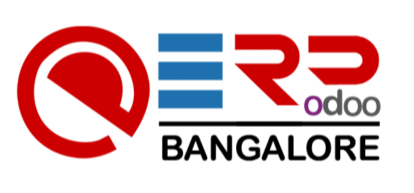Introduction: Mastering Expense Management for Business Growth

In today’s dynamic business landscape, financial control is paramount for achieving long-term success. At the heart of sound financial management lies expense management, the systematic process of tracking, analyzing, and controlling business expenditures. Often overlooked, effective expense management offers a multitude of benefits for businesses of all sizes.
Importance of Expense Management
Expense management goes beyond simply recording expenses. It’s a strategic approach to ensuring that every dollar spent contributes to achieving business goals. Here’s why it holds significant importance:
- Enhanced Visibility and Control: Effective expense management provides a clear picture of where your company’s money goes. This comprehensive view allows businesses to identify areas for cost savings, optimize spending, and make informed financial decisions.
- Improved Financial Health: By controlling unnecessary expenditures, businesses can ensure healthy cash flow, strengthen their financial position, and avoid financial strain. This stability fosters a foundation for future growth and investment opportunities.
- Reduced Waste and Fraud: A robust expense management system helps minimize wasteful spending and detect potential fraudulent activities. Streamlined processes and clear spending policies discourage unauthorized expenditures, safeguarding valuable company resources.
- Streamlined Operations: Efficient expense management systems can automate tedious tasks like expense reporting and reimbursement. This frees up valuable time and resources for employees, allowing them to focus on core business activities.
- Improved Compliance: Clear and organized expense records ensure a business adheres to relevant tax regulations and financial reporting requirements. This reduces the risk of audits and potential penalties, ensuring compliance and peace of mind.
Impact on Business Efficiency

Effective expense management has a ripple effect, positively impacting various aspects of business efficiency:
- Increased Profitability: By identifying areas for cost reduction and optimizing spending, businesses can improve their profit margins and maximize return on investment.
- Enhanced Decision-Making: Data generated through expense management empowers businesses to make informed strategic decisions based on real-time financial insights.
- Improved Resource Allocation: By understanding where resources are being spent, businesses can allocate them strategically to areas that align with their growth objectives.
- Boosted Employee Productivity: Streamlined expense reporting frees up employees from time-consuming paperwork, allowing them to focus on core tasks and contribute more effectively.
- Stronger Vendor Relationships: Transparent expense management practices foster trust and stronger relationships with vendors, potentially leading to better pricing and negotiation opportunities.
In conclusion, expense management is not just about saving money, but about strategically optimizing resources to pave the way for sustainable business growth. As we delve deeper into this guide, we’ll explore various expense management strategies, the benefits of automation, and best practices for implementing a successful expense management system within your organization.
Benefits of Effective Expense Management
Financial Transparency
Effective expense management sheds light on your spending habits, giving you a clear picture of your financial health. This transparency offers several advantages:
- Informed Decision-Making: With a comprehensive understanding of where your money goes, you can make informed choices about resource allocation. You can prioritize spending on essential areas and identify opportunities to cut back on unnecessary expenses.
- Improved Budgeting: When you have clear data on your past spending patterns, you can create more realistic and achievable budgets for the future. This allows for better financial planning and avoids situations where you end up exceeding your allocated budget.
- Enhanced Cash Flow Management: Tracking expenses empowers you to predict cash inflows and outflows more accurately. This transparency is crucial for maintaining a healthy cash flow, which is the lifeblood of any business or individual financial plan.
Cost Reduction Strategies
Effective expense management isn’t just about tracking spending; it’s about identifying areas to optimize and reduce costs. Here’s how it helps:
- Cost-Cutting Opportunities: By meticulously monitoring expenses, you can pinpoint areas where you might be spending excessively. This can lead to cost-cutting measures like renegotiating vendor contracts, eliminating unnecessary subscriptions, or finding more economical alternatives for supplies.
- Expense Optimization: Effective expense management goes beyond simply cutting costs. It’s about optimizing your spending to get the most value out of every rupee. This might involve negotiating better deals with vendors, consolidating purchases, or leveraging technology to streamline processes and reduce waste.
- Improved Financial Efficiency: When you manage expenses effectively, you eliminate unnecessary spending and optimize your spending on what truly matters. This translates to improved financial efficiency, which means you get more out of the money you spend.
Compliance and Accountability
Effective expense management ensures that your spending adheres to regulations and internal policies. This fosters a culture of accountability and strengthens financial governance.
- Regulatory Compliance: Certain industries have strict regulations regarding expense reporting and documentation. Effective expense management ensures you comply with these regulations, avoiding potential fines and legal issues.
- Accountability: Clear expense management processes hold individuals and departments accountable for their spending. This encourages responsible spending habits and discourages misuse of funds.
- Stronger Financial Governance: Effective expense management practices contribute to a robust system of financial governance. This system ensures transparency, accountability, and adherence to financial regulations, fostering trust and confidence in the financial management of an organization.
In conclusion, effective expense management offers a multitude of benefits, including financial transparency, cost reduction strategies, and improved compliance and accountability. By implementing a system that tracks, analyzes, and optimizes spending, you can gain control over your finances and make smarter financial decisions.
Expense Tracking Tools and Software
Introduction to Expense Management Software
Gone are the days of relying solely on spreadsheets and receipts stuffed in envelopes to track your spending. Expense management software, also known as expense tracking tools or financial technology (FinTech) solutions, has revolutionized the way individuals and businesses manage their finances.
These software programs offer a user-friendly platform to automate expense tracking, simplify reporting, and gain valuable insights into your spending habits. Here’s how expense management software benefits users:
- Streamlined Expense Capture: Manually entering every expense can be time-consuming and error-prone. Expense management software allows for quick and easy capture of receipts through features like mobile app integration, optical character recognition (OCR) technology for automatic data entry, and bank statement imports.
- Effortless Organization: Software eliminates the need for physical piles of receipts. The software automatically categorizes and organizes your expenses, making it easier to find specific transactions and generate reports.
- Enhanced Data Security: Paper receipts can be easily lost or damaged. Expense management software stores your data electronically, ensuring greater security and accessibility.
Features of Effective Expense Tracking Tools
With a vast array of expense management software options available, choosing the right tool requires careful consideration. Here are some key features to look for
- Automation: Effective expense tracking tools automate tedious tasks like data entry and receipt categorization. Look for features like OCR technology that automatically extracts information from receipts, mobile app integration for on-the-go expense capture, and bank statement import capabilities.
- Reporting: Robust reporting features are crucial for analyzing spending patterns and identifying trends. The software should allow you to generate customized reports by category, vendor, date range, or any other relevant criteria. This allows you to visualize your spending and gain valuable insights for informed financial decisions.
- User-Friendly Interface: The software’s interface should be intuitive and easy to navigate. Look for a platform that is user-friendly and caters to varying levels of technical expertise. A well-designed interface will encourage consistent engagement and data entry.
Additional Features to Consider:
- Collaboration: For businesses with multiple employees, collaboration features can be beneficial. These features allow team members to submit expenses, share receipts, and generate reports collaboratively.
- Integration with Accounting Software: If you use accounting software, ensure the expense tracking tool integrates seamlessly to avoid duplicate data entry and streamline your financial processes.
- Security: Since expense management software handles sensitive financial data, robust security features are paramount. Look for tools that offer data encryption, secure login protocols, and user access controls.
By leveraging the right expense tracking software, you can transform expense management from a tedious chore into a valuable tool for financial empowerment and informed decision-making. The next section will delve deeper into specific types of expense tracking tools to help you choose the one that best suits your needs.
Implementing Best Practices for Expense Control
Effective expense management goes beyond simply using software. Here are key practices to put in place for optimal expense control:
Setting Budgets and Spending Limits
The foundation of expense control lies in creating a budget. This involves:
- Identifying Income Sources: Start by understanding your income streams, whether it’s a salary, business revenue, or a combination of both.
- Categorizing Expenses: List down all your regular expenses, such as rent, utilities, groceries, transportation, and entertainment.
- Prioritizing Spending: Allocate your income towards essential expenses first, then determine how much you can allocate to discretionary spending.
- Setting Spending Limits: Establish realistic spending limits for each category to ensure you don’t exceed your budget.
Employee Training on Expense Policies
For businesses, clear communication and employee education are essential:
- Develop Clear Expense Policies: Create a comprehensive expense policy outlining acceptable spending categories, spending limits, and proper receipt management procedures.
- Employee Training: Regularly train employees on the expense policy, including the reimbursement process, acceptable business expenses, and the importance of adhering to spending limits.
- Open Communication: Encourage open communication so employees can clarify any doubts regarding the expense policy and avoid unintentional policy violations.
Receipt Management and Documentation
Proper receipt management is crucial for accurate expense tracking and reimbursement:
- Standardized Receipt Collection: Establish a system for collecting receipts, whether it’s physical copies, digital scans, or mobile app integration with expense tracking software.
- Clear Documentation: Ensure receipts include all necessary details, such as date, vendor, amount spent, and a brief description of the expense.
- Record-Keeping: Maintain organized records of your receipts, either electronically within your expense tracking software or physically in a designated folder.
Additional Best Practices:
- Regular Review and Analysis: Regularly review your expenses and spending patterns to identify areas for improvement. Expense tracking software can generate reports that make this process easier.
- Approval Processes: Consider implementing an approval process for certain expense categories, especially for larger purchases. This adds an extra layer of control and ensures responsible spending.
- Negotiate Vendor Rates: For recurring expenses like subscriptions or vendor services, explore opportunities to negotiate better rates.
By implementing these best practices alongside effective expense tracking software, you can achieve optimal expense control and make the most of your financial resources.
Strategies for Managing Business Travel Expenses
Business travel expenses can be a significant cost for any organization. Here are key strategies to effectively manage these expenses:
Pre-Approval Processes
Establishing clear pre-approval processes helps control spending before trips even begin:
- Travel Authorization: Implement a system for employees to request travel authorization prior to booking flights, hotels, and other travel arrangements. This allows managers to review trip purposes, budgets, and ensure adherence to company travel policies.
- Cost Comparison and Negotiation: Encourage employees to compare prices and negotiate rates for flights, hotels, and car rentals. Setting pre-approved spending limits for different expense categories (e.g., daily meals) can further guide cost-conscious decisions.
- Consider Alternatives: Explore alternative travel options like budget airlines, loyalty programs, and video conferencing to see if they can achieve the business objective at a lower cost.
Streamlining Reimbursement Procedures
A smooth and efficient reimbursement process keeps employees satisfied and reduces administrative burdens:
- Clear Expense Reporting Guidelines: Provide clear and concise guidelines for expense reporting. This includes specifying acceptable expenses, required documentation (receipts), and deadlines for submission.
- User-Friendly Expense Reporting Tools: Utilize expense tracking software that simplifies reporting for employees. Features like mobile app integration for receipt capture and automated data entry can significantly speed up the process.
- Efficient Reimbursement Cycles: Establish a defined timeframe for processing and reimbursing employee travel expenses. Timely reimbursements demonstrate your commitment to employee well-being and can boost morale.
Additional Strategies:
- Corporate Travel Management Programs: Consider partnering with a corporate travel management program that negotiates discounted rates with airlines, hotels, and car rental companies. This can lead to significant cost savings for your organization.
- Travel Per Diems: Implementing a per diem system simplifies expense management for frequently traveling employees. A per diem allocates a fixed amount per day for meals and incidental expenses, eliminating the need for employees to track and report every small expense.
- Travel Reward Programs: Encourage employees to participate in travel reward programs to accumulate points or miles that can be used for future business trips. This can incentivize cost-conscious travel decisions.
By implementing these strategies, you can gain greater control over business travel expenses, optimize spending, and ensure a smooth and efficient expense management process for both employees and the organization.
Challenges in Expense Management
Despite its numerous benefits, effective expense management presents its own set of hurdles:
Handling Complex Expense Structures
Modern businesses often have intricate expense structures:
- Diverse Spending Categories: Organizations may incur a wide range of expenses, from traditional categories like travel and meals to subscriptions, software licenses, and professional development fees. Tracking and managing such diverse spending can be complex.
- Global Operations: Companies with international operations face additional challenges due to currency fluctuations, varying tax regulations, and the need to manage expenses across different time zones and languages.
- Decentralized Teams: With geographically dispersed teams or remote work arrangements, it can be difficult to maintain consistent expense tracking practices and ensure adherence to company policies.
Addressing Fraud and Unauthorized Expenses
Expense fraud can pose a significant threat to any organization’s financial health:
- Fictitious Expenses: Employees may submit claims for expenses that were never incurred, such as fabricated meals, travel, or supplies.
- Inflated Expenses: Employees might exaggerate the actual cost of legitimate expenses by doctoring receipts or submitting inflated amounts.
- Personal Expenses on Business Accounts: Misusing company credit cards or expense accounts for personal purchases is another form of expense fraud.
These challenges necessitate implementing robust processes and leveraging technology to:
- Establish Clear Expense Policies: Clearly define acceptable expenses, spending limits, and proper receipt management procedures.
- Regular Reviews and Audits: Conduct periodic reviews of expense reports and implement random audits to deter fraudulent activity.
- Utilize Expense Management Software: Expense tracking software with features like automated receipt capture, data validation, and anomaly detection can help identify suspicious claims.
By acknowledging these challenges and taking proactive measures, organizations can ensure the effectiveness of their expense management strategies.
Expense Reports and Analytics
Generating Comprehensive Expense Reports
Expense reports are the culmination of your expense tracking efforts. They provide a consolidated view of your spending and serve as a foundation for valuable financial insights. Here’s what effective expense reports should offer:
- Detailed Transaction Listing: Reports should include a breakdown of all expenses, including date, vendor, category, amount spent, and a brief description. This level of detail allows for a clear understanding of where your money is going.
- Categorization and Filtering: The ability to categorize expenses and filter reports by category, date range, department, or any other relevant criteria allows for deeper analysis of spending patterns and trends.
- Data Visualization: Visual representations like charts and graphs can make expense data easier to understand. Look for reporting tools that offer charts and graphs to visualize spending trends over time, identify areas of high spending, and compare expenses across departments or projects.
Leveraging Data for Strategic Decision-Making
Expense reports, when coupled with data analysis, transform raw data into actionable insights:
- Cost Reduction Opportunities: By analyzing spending patterns, you can identify areas where you might be overspending and implement cost-reduction strategies.
- Budgeting and Forecasting: Historical expense data can inform more accurate budgeting and financial forecasting for future periods. This allows for better financial planning and resource allocation.
- Improved Resource Allocation: By understanding how resources are currently being used, you can make informed decisions about resource allocation and optimize spending to align with your strategic objectives.
- Vendor Management: Expense data can reveal trends in vendor spending. This can be used to negotiate better rates with existing vendors or identify more cost-effective alternatives.
Moving Beyond Basic Reporting:
While basic expense reports offer valuable insights, consider these additional steps to maximize the analytical power of your expense data:
- Benchmarking: Compare your spending against industry benchmarks or internal benchmarks from previous periods to identify areas for improvement.
- Scenario Planning: Use expense data to model different financial scenarios and assess the potential impact of budget changes or strategic initiatives on your spending.
- Integration with Financial Systems: Integrating expense management software with your accounting or financial planning software allows for a more holistic view of your financial health and facilitates informed financial decision-making.
By leveraging expense reports and data analysis effectively, you can gain a deeper understanding of your spending habits, identify areas for optimization, and make strategic financial decisions that contribute to your overall financial success.
Integration of Expense Management with Accounting Systems
Seamless Integration for Financial Accuracy
Integrating your expense management software with your accounting system offers significant advantages:
- Eliminates Duplicate Data Entry: Manual data entry between separate systems is time-consuming and prone to errors. Integration ensures data flows seamlessly between the two platforms, eliminating the need for duplicate entries and improving data accuracy.
- Reconciliation Efficiency: Reconciling expense reports with bank statements and credit card transactions becomes a much faster and more streamlined process when the data is already consolidated within a single system.
- Enhanced Reporting Capabilities: Integration allows you to generate comprehensive financial reports that combine expense data with other financial information like income and accounts payable. This provides a more holistic view of your financial health.
Automation for Efficiency
Streamlining workflows through automation is another key benefit of integration:
- Automatic Expense Categorization: Integrated systems can automatically categorize expenses based on predefined rules, eliminating the need for manual categorization and saving time.
- Automated Reimbursement Processing: Integration can automate the reimbursement process, expediting reimbursements for employees and reducing administrative tasks for the finance team.
- Improved Workflow Efficiency: Overall workflow efficiency is enhanced by eliminating manual data entry steps and automating repetitive tasks associated with expense management and accounting processes.
By integrating your expense management software with your accounting system, you can achieve greater financial accuracy, improve efficiency, and gain a more comprehensive understanding of your financial situation. This paves the way for better financial decision-making and overall financial health.
Future Trends in Expense Management
The landscape of expense management is constantly evolving, driven by advancements in technology. Here are some exciting trends to watch for:
AI and Machine Learning Applications
Artificial intelligence (AI) and machine learning (ML) are poised to revolutionize expense management even further:
- Smart Receipt Capture and Data Extraction: AI can automatically extract data from receipts with even greater accuracy, eliminating manual data entry and speeding up the expense reporting process.
- Predictive Analytics and Expense Forecasting: Machine learning algorithms can analyze spending patterns and predict future expenses, allowing for more proactive budgeting and resource allocation.
- Real-time Fraud Detection: AI can identify suspicious expense patterns in real-time, helping to prevent fraudulent activity and safeguard your finances.
Mobile Expense Management
The trend towards mobile-centric solutions is likely to continue:
- User-Friendly Mobile Apps: Expect even more user-friendly and intuitive mobile apps that make expense tracking seamless and accessible on-the-go. Features like receipt capture with smartphone cameras and instant expense categorization will become even more sophisticated.
- Integration with Financial Tools: Mobile expense management apps will integrate seamlessly with other financial tools like budgeting apps and personal finance management platforms, providing a more holistic view of your finances.
- Increased Accessibility: Mobile solutions make expense management more accessible for everyone, from individual users to large corporations, fostering better financial control and empowering informed spending decisions.
These advancements promise to make expense management even more efficient, insightful, and user-friendly, paving the way for a future of smarter financial management.
Conclusion: Mastering Expense Management for Financial Success
Effective expense management is the cornerstone of financial success. By taking control of your spending, you gain valuable insights into your financial health, identify areas for optimization, and make informed decisions about your resources.
Whether you’re an individual or a business, implementing a robust expense management system empowers you to:
- Achieve Financial Transparency: Gain a clear understanding of where your money goes and make informed spending choices.
- Optimize Costs: Identify areas for cost reduction and leverage your resources more effectively.
- Ensure Compliance: Adhere to regulations and internal policies, fostering accountability and responsible financial practices.
Expense management software and data analysis tools play a vital role in simplifying the process and unlocking valuable financial insights. As technology continues to evolve, expect even smarter and more automated solutions that make expense management effortless and empower you to achieve your financial goals.
By mastering expense management, you take control of your financial future and pave the way for long-term financial security and success.









